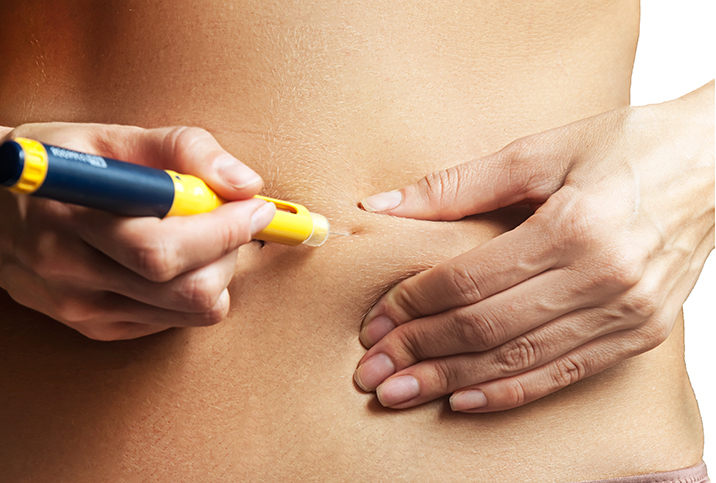What to Expect When Injecting Fertility Meds at Home

Fertility treatments often involve various rounds of medication to control the ovulation cycle and boost fertilization and implantation rates. Certain medications are taken by mouth, while others are directly injected. Here's what you should know about self-administering fertility treatments.
Why do some medications require injection?
Not all medications can withstand digestion. Stomach acid and the digestive process can destroy the therapeutic components of specific prescriptions. As a result, injection is a more reliable way to ensure your body receives the dosage required to produce desired effects.
Commonly prescribed injections for infertility
Individuals undergoing in vitro fertilization (IVF) or intrauterine insemination (IUI) often need to inject medication to improve the likelihood of success. Examples of fertility prescriptions include the following:
- Estrogen—Estradiol valerate (a form of estrogen) may be recommended as an intramuscular injection in some infertility cases.
- Gonadotropins—Follicle-stimulating hormone (FSH) or a combination of FSH and luteinizing hormone (LH) is injected to increase the number of egg-containing follicles released by the ovaries during an ovulation cycle.
- Human chorionic gonadotropin (hCG)—A similar injectable hormone, hCG activates the release of mature eggs.
- Progesterone—This is injected intramuscularly to support the uterine lining during implantation and early pregnancy. You may also use a vaginal suppository.
Medications that act as hormone agonists or antagonists may be used to control the body's natural release of fertility-related hormones. It's crucial to get the timing right to ensure the efficacy of these types of therapies.
How to inject medications at home
Your fertility clinic should provide detailed instructions on how to self-inject medications. A nurse may review the protocol with you in the office or send an instructional video. To reduce the risk of infection, you'll need to sterilize the area first with alcohol wipes, wash your hands and properly dispose of needles.
Take care to ensure you're getting the correct dosage and placing your injection in the right spot. Most fertility medications are injected with a tiny needle near the abdomen. Others must be injected into fat or muscle tissue. Most fertility meds are injected just below the skin. You may need to mix a solution or powder before injection.
Strategies to overcome a fear of needles
Fear of needles is known as trypanophobia. Although this condition is more common in young children, researchers estimate each year 16 percent of adults (and 27 percent of hospital workers) avoid getting a flu shot due to trypanophobia. Being afraid of injections can become a barrier to receiving medical care, including infertility treatments.
Sometimes, the best way to overcome a phobia is through exposure. Mustering up the courage to receive a first or second injection should make future shots more bearable. However, if you struggle to overcome the initial step, reach out to your healthcare provider for guidance and support. Chances are they've encountered patients with trypanophobia before and may have resources you can use to ensure you don't miss crucial treatments.
Getting assistance from a loved one or going into the office to receive injections from a healthcare provider may be necessary if you're unable to inject yourself.
















